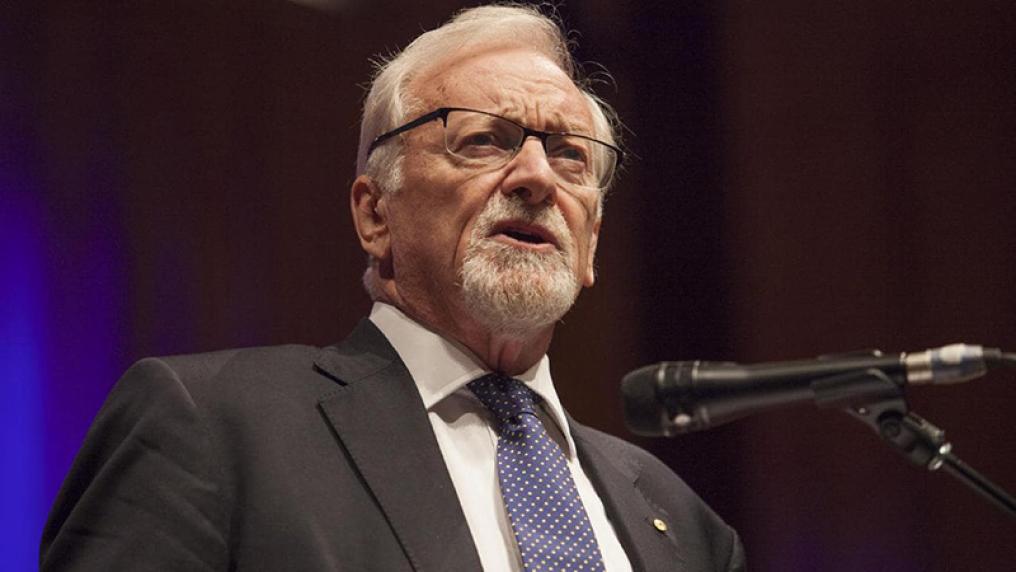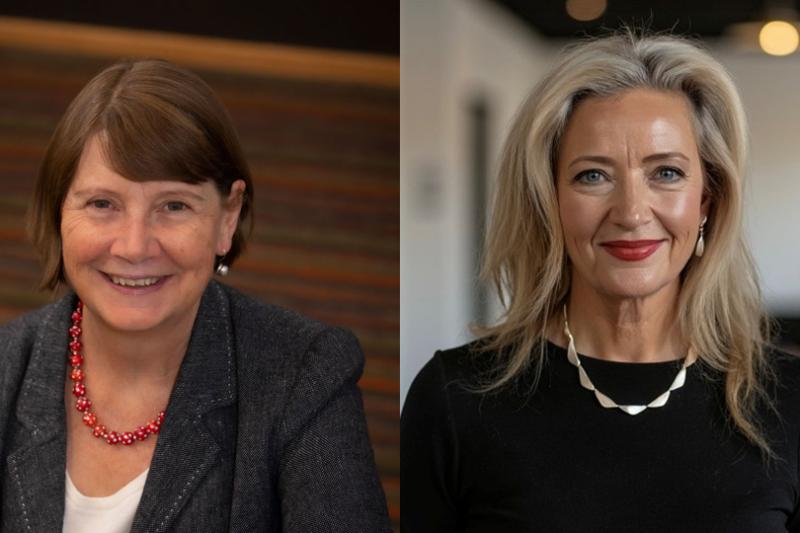Students get a dose of Gareth Evans inspiration

The man who started his Cabinet career as Attorney-General in 1983 and finished as Australia’s Foreign Minister in 1996, Professor Gareth Evans AC QC gave a strong message of hope and optimism to Victoria University’s law and justice students last night.
Speaking at our Queen Street Campus, just a short stroll from Melbourne’s legal precinct, he cited some of the recent catastrophes in Syria, Libya, Myanmar, Israel and Sri Lanka, but also successes in Kenya, Sierra Leone, Liberia, Guinea, Cote d’Ivoire and Kyrgyzstan.
“The critical necessity for all of us, governments, intergovernmental organisations, NGOs and ordinary citizens is to stay optimistic, to go on believing that what we do can and will make a difference,” he told the Victoria University students.
“The crucial point is that in international relations, as in life itself, outlooks can be self-reinforcing.”
Professor Evans, the former barrister and co-chair of the International Commission on Nuclear Non-Proliferation and Disarmament, added: “If we want to change the world for the better, we must start by believing that change is possible.
“When things that matter get depressing and difficult, however disappointed and frustrated we may be, there is no alternative but to try actively to remedy them in every way one realistically can. You don’t get to change the world simply by observing it. You have to get out there and work for change.”
Professor Evans praised the International Criminal Court (ICC), which enables trial and punishment of mass atrocity crimes and provides an important deterrent for the future, and criticised “the post-truth, post-rationality, post-decency, Trumpian world we now inhabit”.
“It is not only regrettable, but intolerable to the point of disgusting, for the ICC to have come under the attack it recently has from the Trump administration in the United States,” he said.
“National Security Adviser John Bolton’s speech to the Federalist Society on 10 September … stated, in the harshest and ugliest of terms, a determination to hunt it down and eviscerate the ICC: ‘We will ban its judges and prosecutors from entering the United States. We will sanction their funds in the US financial system, and we will prosecute them in the US criminal system. We will do the same for any company or state that assists in an ICC investigation of Americans’.
“As Stephen Rapp, the former ambassador at large for war crimes under [President Barack] Obama, neatly skewered him in reply: ‘We can prevent the prosecution of Americans not by threatening judges, but by showing that we thoroughly investigated and found no cases where the evidence met the burden of proof’.”
Professor Evans, whose time as Foreign Minister corresponded with US Presidents George H. Bush and Bill Clinton, said that “countries like Australia, which can possibly claim to have at least some capacity to get the US to listen, should use every possible diplomatic tool at our disposal to ensure the ICC’s continued existence”.
“Of course the credibility of peer group advocacy can never be greater than that of the governments who conduct it. If we don’t get our own human rights houses in order we run a very real risk of being branded as hypocrites," he said.
"I have to say that Australia has quite a lot more to do in this respect, not least on refugee policy."
"A credible argument can be mounted that our quite deliberately cruel treatment of asylum seekers on Manus Island and Nauru – treatment overtly designed to deter others seeking haven with us – is not just morally intolerable, but may actually involve the commission of crimes against humanity.”



